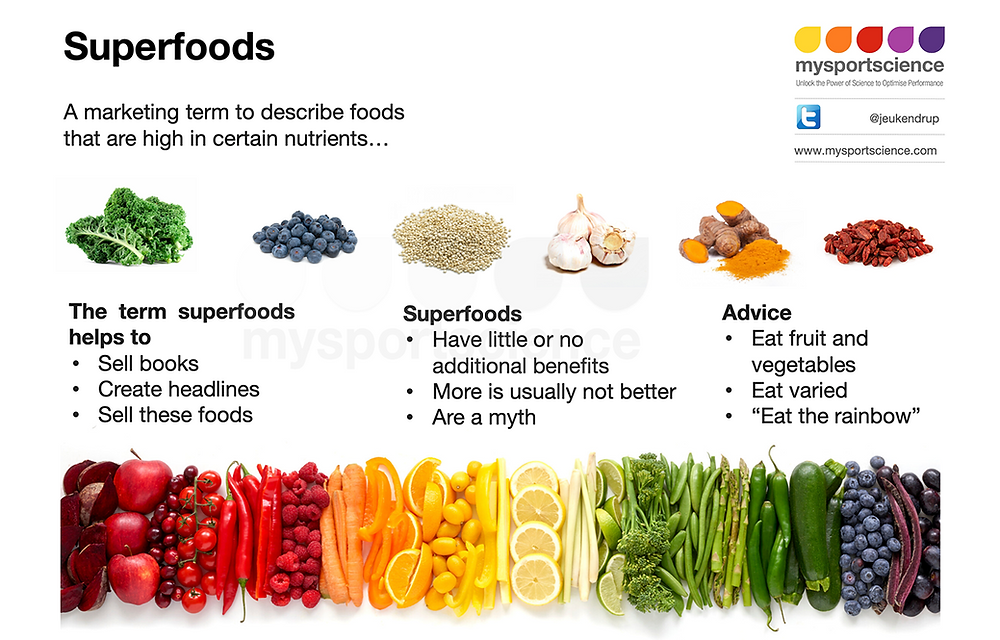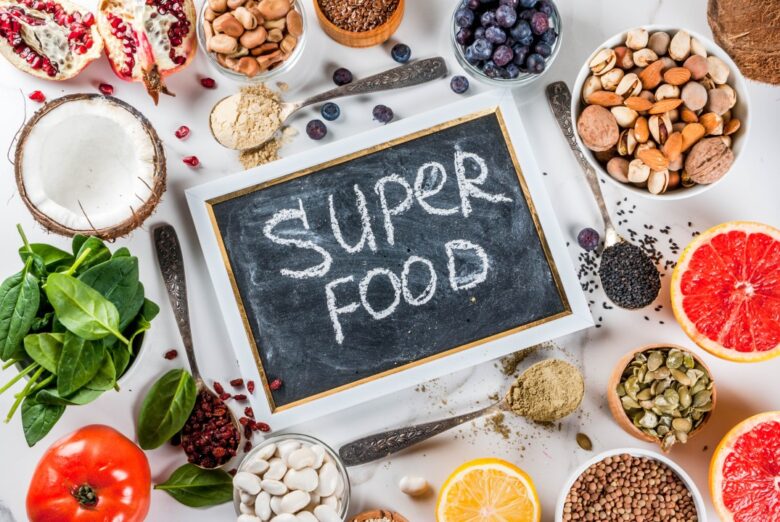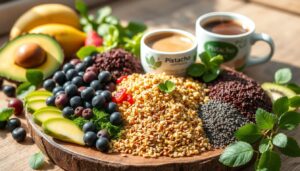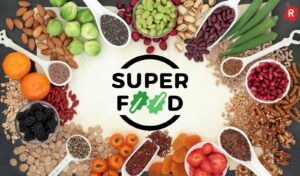Recently, the term “superfood” has become increasingly popular in discussions about health and nutrition. Many believe that these foods, such as blueberries, kale, chia seeds, and fish, are health “powerhouses” that can significantly improve your health. But what does science actually say about superfoods? How can they benefit your health? Understanding the scientific evidence behind these foods can help us understand how they improve health and help us make better food choices.
What does superfood actually mean?

Superfoods are foods with an extremely high nutrient content that offer health benefits far beyond those found in an average diet. This non-scientific term generally refers to foods rich in fiber, high-quality fats, vitamins, and minerals. These ingredients help protect the body from oxidative stress, reduce inflammation, and support important bodily processes such as metabolism, immunity, and heart health.
The nutritional science community is increasingly recognizing that consuming large amounts of these nutrient-rich foods can reduce the risk of chronic diseases such as heart disease, diabetes, and certain cancers.
Key nutrients in superfoods and how they work
Flavonoids: Protecting cells from damage
Antioxidants are molecules that scavenge harmful free radicals produced by the body or the environment. This is why many superfoods are beneficial. When there are too many free radicals, oxidative stress occurs. This stress can damage DNA, proteins, and cell walls.
For example, berries like
- blueberries
- strawberries
Strawberries are rich in flavonoids, which are powerful antioxidants that have been shown to reduce inflammation and improve blood vessel function. A study published in the American Journal of Clinical Nutrition showed that people who consumed more flavonoids had a lower risk of cardiovascular disease.
Fiber is good for the digestive system and metabolism. Fiber-rich foods, such as beans, oats, and leafy greens, are good for digestion because they contribute to regular bowel movements and support the growth of beneficial bacteria in the gut. Fiber also slows the absorption of glucose, keeping blood sugar levels stable and reducing insulin spikes. This is an important way to prevent diabetes.
The Journal of Nutrition examines how dietary fiber can lower LDL (“bad”) cholesterol and thus help reduce the risk of cardiovascular disease.
What are healthy fats? Superfoods like nuts, seeds, oily fish (such as salmon and mackerel), and avocados are rich in omega-3 fatty acids and monounsaturated fats, which can reduce inflammation and improve cholesterol levels. Omega-3 fatty acids are essential for brain health and may help alleviate depression and memory loss.
Chart: Antioxidant Capacity of Selected Superfoods (ORAC Value)*
| Food Item | ORAC Value (µmol TE/100g) | Health Implications |
|---|---|---|
| Blueberries | 9,621 | Strong antioxidant, heart protection |
| Dark Chocolate (70%) | 20,816 | High antioxidant, cognitive benefits |
| Kale | 1,770 | Anti-inflammatory, cancer prevention |
| Pecans | 17,940 | Heart health, cholesterol management |
| Spinach | 1,513 | Cellular protection, vision health |
*ORAC = Oxygen Radical Absorbance Capacity, a measure of antioxidant potency.
Frequently Asked Questions
1. Are superfoods a beneficial way to avoid illness?
Absolutely not. Superfoods offer health benefits and can reduce the risk of disease, but they work best when combined with a balanced diet and a healthy lifestyle, including exercise and adequate sleep.
2. Can I get all the nutrients I need with superfoods?
Although superfoods are rich in nutrients, it’s wise to eat a variety of foods to meet all your nutritional needs.
3. Is it better to eat superfoods raw or cooked?
Both foods are beneficial. Some nutrients are better absorbed when cooked, such as the lycopene in tomatoes, while others, such as vitamin C, are better consumed raw.
4. How much protein should I consume daily?
It’s best to consume several superfoods daily. Try to choose different foods instead of just one.
5. Can vitamins replace superfoods?
Supplements can address nutritional deficiencies, but they are not as rich in fiber, enzymes, and phytochemicals as whole foods.
Summary
Superfood research provides strong evidence that these nutrient-dense foods can benefit your health, reducing inflammation, combating oxidative stress, and promoting good heart and digestive health. However, no single food can guarantee protection against disease. A balanced, varied diet, combined with good habits and a variety of superfoods, offers the greatest benefits.
Understanding the science behind nutrition and consuming a variety of superfoods daily can put you in control of your health and allow you to reap the benefits of increased energy, a lower risk of disease, and improved overall well-being.
References
- Goncourt T.H. Chan School of Public Health. Are Superfoods Really That Good? The Harvard School of Public Health website provides details about superfoods.
- National Institutes of Health (NIH). Antioxidants in Nutrition and Health. https://ods.od.nih.gov/factsheets/High-Level-Antioxidants
- American Journal of Clinical Nutrition. The consumption of flavonoids increases the risk of cardiovascular disease. https://academic.oup.com/ajcn/article/95/3/454/4576759




